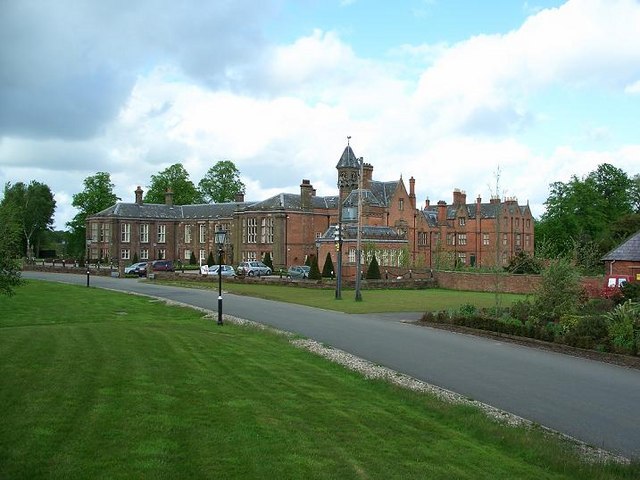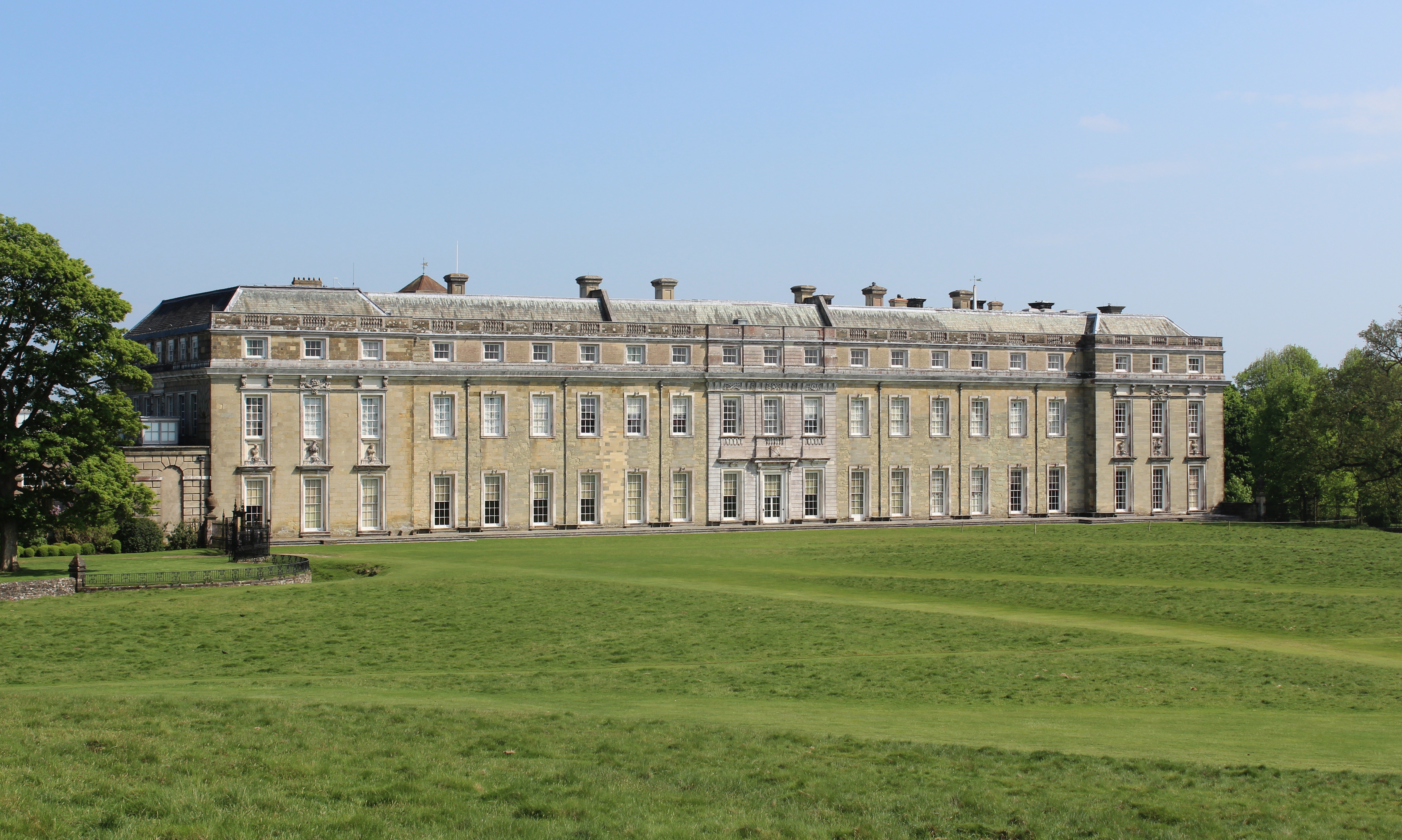|
Henry Williams-Wynn
Sir Henry Watkin Williams-Wynn KCB GCH (16 March 1783 – 28 March 1856) was a British MP in the early 19th century. From 1824 to 1853, he served as the British Envoy to Denmark. Early life He was the younger son of eight children, six of whom survived to adulthood, of Sir Watkin Williams-Wynn, 4th Baronet, and, his second wife, Charlotte Grenville. Among his siblings was elder brothers Sir Watkin Williams-Wynn, 5th Baronet (who married Lady Henrietta Clive, a daughter of Edward Clive, 1st Earl of Powis) and Charles Williams-Wynn, Secretary at War and Chancellor of the Duchy of Lancaster (who married Mary Cunliffe, daughter of Sir Foster Cunliffe, 3rd Baronet). His sister Henrietta Elizabeth Williams-Wynn, married Thomas Cholmondeley, 1st Baron Delamere. His father was the only son of Sir Watkin Williams-Wynn, 3rd Baronet and his second wife, Frances Shackerley of Cheshire, and succeeded to the baronetcy (and extensive Wynnstay estates, the largest in North Wales) when only ... [...More Info...] [...Related Items...] OR: [Wikipedia] [Google] [Baidu] |
The Right Honourable
''The Right Honourable'' ( abbreviation: ''Rt Hon.'' or variations) is an honorific style traditionally applied to certain persons and collective bodies in the United Kingdom, the former British Empire and the Commonwealth of Nations. The term is predominantly used today as a style associated with the holding of certain senior public offices in the United Kingdom, Canada, New Zealand, and to a lesser extent, Australia. ''Right'' in this context is an adverb meaning 'very' or 'fully'. Grammatically, ''The Right Honourable'' is an adjectival phrase which gives information about a person. As such, it is not considered correct to apply it in direct address, nor to use it on its own as a title in place of a name; but rather it is used in the third person along with a name or noun to be modified. ''Right'' may be abbreviated to ''Rt'', and ''Honourable'' to ''Hon.'', or both. ''The'' is sometimes dropped in written abbreviated form, but is always pronounced. Countries with common or ... [...More Info...] [...Related Items...] OR: [Wikipedia] [Google] [Baidu] |
Sir Watkin Williams-Wynn, 5th Baronet
Sir Watkin Williams-Wynn, 5th Baronet (25 October 1772 – 6 January 1840) was a Welsh landowner and Tory politician who sat in the House of Commons from 1794 to 1840. Biography Williams-Wynn was the son of Sir Watkin Williams-Wynn, 4th Baronet and his second wife, Charlotte, daughter of George Grenville, a former Prime Minister, through whose sister Hester's marriage to William Pitt, 1st Earl of Chatham, Williams-Wynn became cousin to Pitt the Younger. He was educated at Westminster School and Christ Church, Oxford. He succeeded his father in the baronetcy on 29 July 1789. He received Hon. D.C.L. at Oxford in 1793 and was Lord Lieutenant of Merionethshire from 1793 to 1840 and Lord Lieutenant of Denbighshire from 1796 to 1840. In 1819 Williams-Wynn was admitted to Magdalene College, Cambridge and was awarded MA. He declined several offers of a peerage. [...More Info...] [...Related Items...] OR: [Wikipedia] [Google] [Baidu] |
Hanoverian Order
The Royal Guelphic Order (german: Königliche Guelphen-Orden), sometimes referred to as the Hanoverian Guelphic Order, is a Hanoverian order of chivalry instituted on 28 April 1815 by the Prince Regent (later King George IV). It takes its name from the House of Guelph, of which the Hanoverians were a branch. Since Hanover and the United Kingdom shared a monarch until 1837, the order was frequently bestowed upon British subjects. History Until 1837 the order was frequently awarded to officers in the British Navy and Army, although it was still classed as a foreign order, with British members of the order not entitled to style themselves as "Sir" unless they were also created Knights Bachelor, as many were. The British link ended in 1837 when Hanover's royal union with Great Britain ended, with Ernest Augustus becoming King of Hanover and Queen Victoria ascending the British throne. When Hanover was annexed by the Kingdom of Prussia in 1866, the order continued as a house orde ... [...More Info...] [...Related Items...] OR: [Wikipedia] [Google] [Baidu] |
Prime Minister Of The United Kingdom
The prime minister of the United Kingdom is the head of government of the United Kingdom. The prime minister advises the sovereign on the exercise of much of the royal prerogative, chairs the Cabinet and selects its ministers. As modern prime ministers hold office by virtue of their ability to command the confidence of the House of Commons, they sit as members of Parliament. The office of prime minister is not established by any statute or constitutional document, but exists only by long-established convention, whereby the reigning monarch appoints as prime minister the person most likely to command the confidence of the House of Commons; this individual is typically the leader of the political party or coalition of parties that holds the largest number of seats in that chamber. The prime minister is '' ex officio'' also First Lord of the Treasury, Minister for the Civil Service and the minister responsible for national security. Indeed, certain privileges, such as List ... [...More Info...] [...Related Items...] OR: [Wikipedia] [Google] [Baidu] |
Sir William Wyndham, 3rd Baronet
Sir William Wyndham, 3rd Baronet (c. 168817 June 1740), of Orchard Wyndham in Somerset, was an English Tory politician who sat in the House of Commons from 1710 to 1740. He served as Secretary at War in 1712 and Chancellor of the Exchequer in 1713 during the reign of the last Stuart monarch, Queen Anne (1702–1714). He was a Jacobite leader firmly opposed to the Hanoverian succession and was leader of the Tory opposition in the House of Commons during the reign of King George I (1714–1727) and during the early years of King George II (1727–1760). His first wife was Lady Catherine Seymour, the younger of the two daughters of Charles Seymour, 6th Duke of Somerset (died 1748), and in her children by Wyndham, heiress to half of the vast estates, including Petworth House in Sussex and Egremont Castle in Cumberland, formerly held by the extinct Percy family, Earls of Northumberland. As a result of this complex inheritance his eldest son became the 2nd Earl of Egremont. Both hi ... [...More Info...] [...Related Items...] OR: [Wikipedia] [Google] [Baidu] |
Elizabeth Grenville
Elizabeth Grenville (; 1719 – 5 December 1769) was a British artist and writer. She was the wife of George Grenville, prime minister from 1763 to 1765; the daughter of Sir William Wyndham, a prominent Tory politician; and the mother of William Grenville, prime minister from 1806 to 1807. Early life She was born Elizabeth Wyndham in 1719 to Sir William Wyndham and his first wife, Lady Catherine Seymour, the daughter of Charles Seymour, 6th Duke of Somerset. She was baptised on 31 January 1719 in Westminster and had two older brothers, Charles and Percy. Her father was a prominent politician in the 1710s and 1720s, serving as Chancellor of the Exchequer and leader of the Tories. Wyndham's mother, Catherine, died in 1731 and William remarried in 1734 to Maria Catherina de Jonge. Wyndham suffered from smallpox when she was young, which left scarring on her face. Writing and art Wyndham kept a book of newspaper cuttings, mostly relating to political subjects, and kept a diar ... [...More Info...] [...Related Items...] OR: [Wikipedia] [Google] [Baidu] |
Wynnstay
Wynnstay is a country house within an important landscaped park 1.3 km (0.75 miles) south-east of Ruabon, near Wrexham, Wales. Wynnstay, previously Watstay, is a famous estate and the family seat of the Wynns. The house was sold in 1948 and is under a private ownership as of 2020. The estate remains under the ownership of the Williams-Wynn family. During the 17th century, Sir John Wynn, 5th Baronet, inherited the Watstay Estate through his marriage to Jane Evans (daughter of Eyton Evans of Watstay), and renamed it the Wynnstay Estate. The gardens were laid out by Capability Brown. Wynnstay was Brown's largest commission in Wales, work beginning in 1774 and completed in 1784, a year after his death. He replaced the older formal gardens with lawns which swept right up to the house overlooking the lake. Famous occupants of the house and estate included Sir Watkin Williams-Wynn, 4th Baronet. During the 19th century, Princess Victoria stayed there with her mother, the Duchess ... [...More Info...] [...Related Items...] OR: [Wikipedia] [Google] [Baidu] |
Sir Watkin Williams-Wynn, 3rd Baronet
Sir Watkin Williams-Wynn, 3rd Baronet (c. 169226 September 1749) was a Welsh politician and landowner who sat in the British House of Commons from 1716 to 1749, when he died in office. A member of the Tory party, he was also a prominent Jacobite sympathiser. He helped engineer the downfall of Prime Minister Robert Walpole in 1742 and engaged in negotiations with the exiled Stuarts prior to the Jacobite rising of 1745 but did not participate in the rebellion himself. Watkin died in a hunting accident in 1749. Life Williams-Wynn was the eldest son of Sir William Williams, 2nd Baronet, of Llanforda near Oswestry in Shropshire and Jane Thelwall. His grandfather, also Sir William Williams was Solicitor General under James II and led the prosecution of the Seven Bishops in 1688. His mother was a descendant of the antiquary Sir John Wynn, In 1719, a later Sir John Wynn died, and through his mother's kinship Watkin inherited the Wynnstay estates on condition he added "Wynn" ... [...More Info...] [...Related Items...] OR: [Wikipedia] [Google] [Baidu] |
Thomas Cholmondeley, 1st Baron Delamere
Thomas Cholmondeley, 1st Baron Delamere (; 9 August 1767 – 30 October 1855), was a British peer and Member of Parliament.History of Parliament Online: Cholmondeley, Thomas (1767–1855), of Vale Royal, Cheshire. Accessed Nov 2018. Background  He was the son of Thomas Cholmondeley (1726–1779), for
He was the son of Thomas Cholmondeley (1726–1779), for
|
Sir Foster Cunliffe, 3rd Baronet
Sir Foster Cunliffe, 3rd Baronet (1755–1834) was the founder of the Royal Society of British Bowmen. Biography Foster Cunliffe was the son of Sir Robert Cunliffe, 2nd Baronet and Mary Wright. He succeeded to his father’s baronetcy on the latter’s death in 1778. Sir Foster Cunliffe was uneasy about this because he seems to have concealed the origin of the fortune, omitting the word 'slavery' in a detailed history of his family's genealogy. His grandfather, Foster Cunliffe (1682–1758), made the money by becoming the main slave trader in Liverpool and mayor on three occasions. His son was MP for Liverpool in 1755–67. Sir Foster Cunliffe moved from Saighton, near Chester, to the Acton Park estate near Wrexham, Denbighshire, adding to the existing house, including adding the lavish Four Dogs gateway into the estate - all that remains of the original buildings to this day. He served as High Sheriff of Denbighshire for 1787. He also enlarged and improved Pant-yr-ochai ... [...More Info...] [...Related Items...] OR: [Wikipedia] [Google] [Baidu] |
Chancellor Of The Duchy Of Lancaster
The chancellor of the Duchy of Lancaster is a ministerial office in the Government of the United Kingdom. The position is the second highest ranking minister in the Cabinet Office, immediately after the Prime Minister, and senior to the Minister for the Cabinet Office. The role includes as part of its duties the administration of the estates and rents of the Duchy of Lancaster. Formally, the chancellor of the Duchy of Lancaster is appointed by the Sovereign on the advice of the prime minister, and is answerable to Parliament for the governance of the Duchy. In modern times, however, the involvement of the chancellor in the running of the day-to-day affairs of the Duchy is slight, and the office is held by a senior politician whose main role is usually quite different. In practical terms, it is a sinecure, allowing the prime minister to appoint an additional minister without portfolio to the Cabinet of the United Kingdom. In September 2021 the role was endowed with responsibilit ... [...More Info...] [...Related Items...] OR: [Wikipedia] [Google] [Baidu] |
_(cropped).jpg)
_(cropped).jpg)




